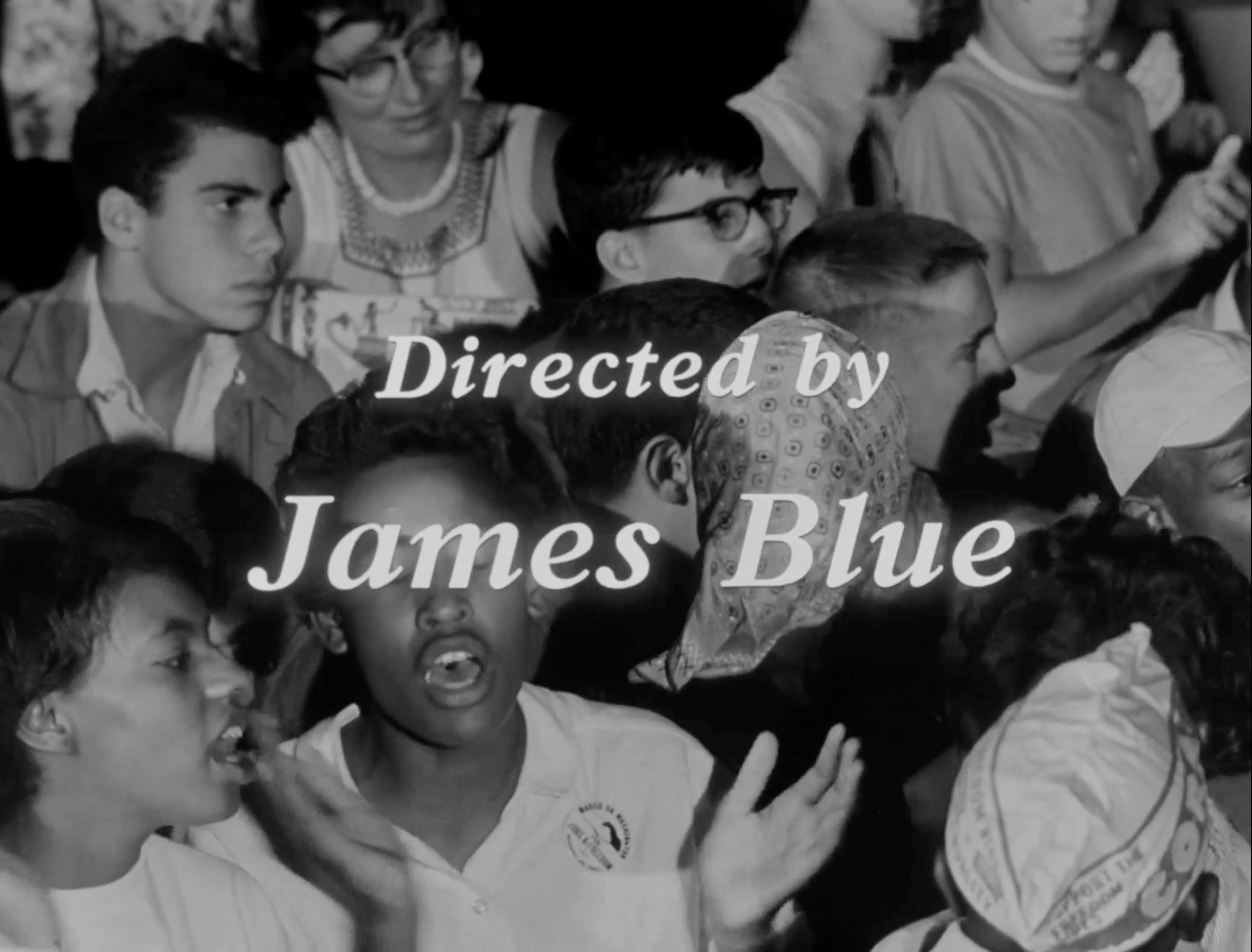Themes

James Blue’s The March (1964) is a humanistic and poetic 33-minute film of the August 28, 1963, March on Washington for Jobs and Freedom, produced and distributed to 83 foreign countries by the United States Information Agency (USIA).
James Blue (1930-1980) was born in Oklahoma. His family moved to Portland, Oregon, when he was 13. He struggled with a racist mother who was a member of the John Birch Society. He graduated from Portland’s Jefferson High School and then, in 1953, from the University of Oregon, with majors in theater and speech. At the UO, Blue was a student of Horace Robinson in theater, Robert D. Clark in speech, and Glen Starlin in radio and television (Blue starred in several plays and worked for KWAX radio station as a producer). Blue and James Ivory (who would later emerge as a major figure in the film world) learned French in the same classes. Robinson, Clark, and Glen Starlin recommended Blue for the prestigious graduate program at the Institut des hautes études cinématographiques (IDHEC) in Paris.
After directing The March, Blue went on to interview seventy of the most important movie directors of the 20th century and to produce, among many short films, an Academy Award-nominated film.
To learn more about James Blue’s life, check out The Making of James Blue. For more on James Blue’s creative process and how he made The March, see The Making of The March.
